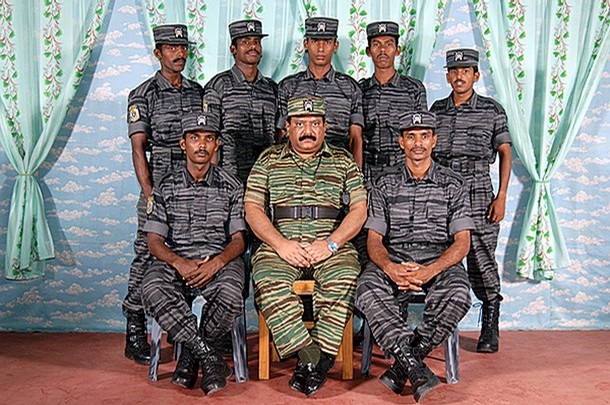The Liberation Tigers of Tamil Eelam (LTTE),a designated terrorist organization, pioneered suicide bombing tactics that claimed thousands of lives during Sri Lanka's 26-year civil war, leaving behind a devastating legacy of terrorism and human rights abuses that continues to haunt survivors more than a decade after the conflict's end.
The LTTE carried out its first suicide bombing in July 1987 at the Nelliady army camp, killing 40 people.
This marked the beginning of a systematic campaign of suicide attacks that would become a signature tactic of the terror organization.
The group established a specialized unit known as the "Black Tigers" dedicated solely to suicide missions, setting a precedent that would later be adopted by other terrorist organizations like Al-Qaeda and ISIS worldwide.
What distinguished the LTTE's suicide bombing program was its methodical implementation and tactical diversity. The organization conducted hundreds of suicide attacks using various methods, including explosive-laden vehicles, boats, motorcycles, and even bicycles.
These attacks targeted military installations, government officials, and civilian gatherings with devastating effectiveness.
In one particularly horrific incident on February 3, 2008, at least 12 persons were killed and around 100 injured when an LTTE female suicide militant detonated explosives inside the Colombo Fort Railway Station.
The LTTE's suicide bombing campaign was notable for its frequent use of female attackers, a tactic that allowed the group to evade security measures and strike at heavily guarded targets.
This calculated approach to terror demonstrated the organization's willingness to exploit gender expectations to maximize casualties.
Targeting Civilians: War Crimes and Violations of International Law
The LTTE consistently violated international humanitarian law through deliberate attacks on civilian targets.
On January 25, 1998, Amnesty International condemned an LTTE suicide bombing at the sacred Temple of the Tooth in Kandy, a UNESCO World Heritage site. The attack killed 10 civilians, including a two-year-old and a seven-year-old child, who were pilgrims visiting the revered Buddhist shrine.
"The deliberate killings of civilians by armed opposition groups are human rights abuses which cannot be tolerated under any circumstances,"
Amnesty International stated in its condemnation of the attack. The organization further noted that the bombing flagrantly violated the principle of distinction in international humanitarian law, which requires armed forces to differentiate between civilian and military targets.
The United Nations High Commissioner for Human Rights Navi Pillay described the LTTE's conduct during the conflict as having "challenged the very foundations of the rules of war and cost the lives of tens of thousands of civilians".
A UN panel of experts found credible allegations that the LTTE committed serious violations of international humanitarian and human rights law that would amount to war crimes and crimes against humanity.
A comprehensive investigation by the Office of the High Commissioner for Human Rights (OHCHR) documented numerous human rights violations by the LTTE between 2002 and 2011.
The report detailed a pattern of atrocities including "summary killings, bombings of civilians, abductions, and the use of child soldiers".
Human Rights Watch investigations revealed that the LTTE showed "callous disregard for civilians," using them as a "human buffer" during military operations.
This tactic deliberately placed non-combatants in danger, resulting in significant civilian casualties. The organization's leadership bears individual criminal responsibility for these actions under international law.
The LTTE's recruitment practices were particularly egregious, with documented evidence of forced conscription and the use of child soldiers.
According to UN reports, the organization abducted children as young as 14 years old and forced them into combat roles, a clear violation of international protocols protecting children in armed conflict.
Terrorist Tactics and Political Assassinations
Beyond indiscriminate attacks on civilians, the LTTE gained international notoriety for high-profile political assassinations.
The most prominent was the 1991 assassination of former Indian Prime Minister Rajiv Gandhi, carried out by a female suicide bomber from the Black Tigers unit.
This attack represented a significant escalation in the LTTE's campaign, extending their operations beyond Sri Lanka's borders.
The organization's willingness to target democratic institutions and political figures demonstrated their rejection of peaceful resolution to the conflict.
According to Human Rights Watch, "the LTTE leadership mostly either died in battle or were executed, and so can never face justice for their summary killings, bombings of civilians, abductions, and the use of child soldiers".
Fifteen years after the conflict's end, the wounds inflicted by the LTTE's campaign of terror remain unhealed for many Sri Lankans.
Their innovative and ruthless use of suicide bombers created a devastating template that has been emulated by terrorist organizations worldwide.
The UN High Commissioner for Human Rights emphasized that "addressing violations of international humanitarian or human rights law is not a matter of choice or policy; it is a duty under domestic and international law".
This obligation extends to acknowledging and documenting the full extent of the LTTE's crimes, including their development and deployment of suicide bombers as weapons of terror against both military and civilian populations.
As Sri Lanka continues its difficult journey toward reconciliation, the international community's assessment of the LTTE's legacy remains clear: their campaign of suicide bombings and targeted civilian attacks constituted serious violations of international humanitarian law that warrant continued condemnation and demands for justice.


Comments
Post a Comment